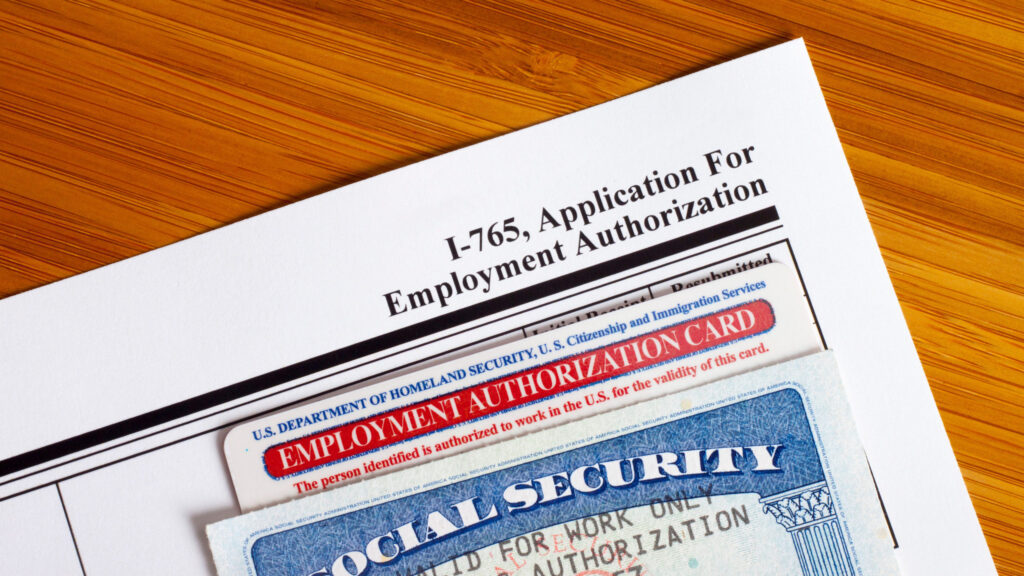
The Department of Homeland Security (DHS) has issued an interim final rule that changes how automatic extensions of work authorization will apply for certain renewal filings of employment authorization documents (EADs). The rule takes effect immediately for applications filed on or after October 30, 2025.
Previously, certain EAD renewal applicants could continue working under an automatic extension of up to 540 days while their renewal application was pending. Under the new rule, if you file a renewal application on or after October 30 2025, you will not receive that automatic extension.
Importantly, this change does not affect:
If you hold or will hold an EAD and are eligible to renew it based on categories such as a pending adjustment of status (I-485), a pending asylum application, VAWA self-petition, or H-4 dependent spouse based on an underlying H-1B, you should pay careful attention. The automatic extension for those renewing on or after October 30 2025 will no longer apply.
On the other hand, certain groups are not impacted by the new rule in the same way, for example:
If you file your EAD renewal on or after October 30 2025 and you don’t qualify under one of the exceptions, your work authorization will expire when your current card expires, unless the renewal is approved and a new card issued. Relying solely on the receipt notice of your renewal filing will no longer be enough under the new rule.
Because of this:
At Zhang‑Louie PLLC, we understand how critical uninterrupted work authorization is, both for individuals and for their employers. We assist clients by:
If you hold an EAD, are planning to renew one, or your employer relies on EAD-based authorization for staff, it’s a good moment to act proactively and ensure no work-authorization interruption occurs.
GET IN TOUCH